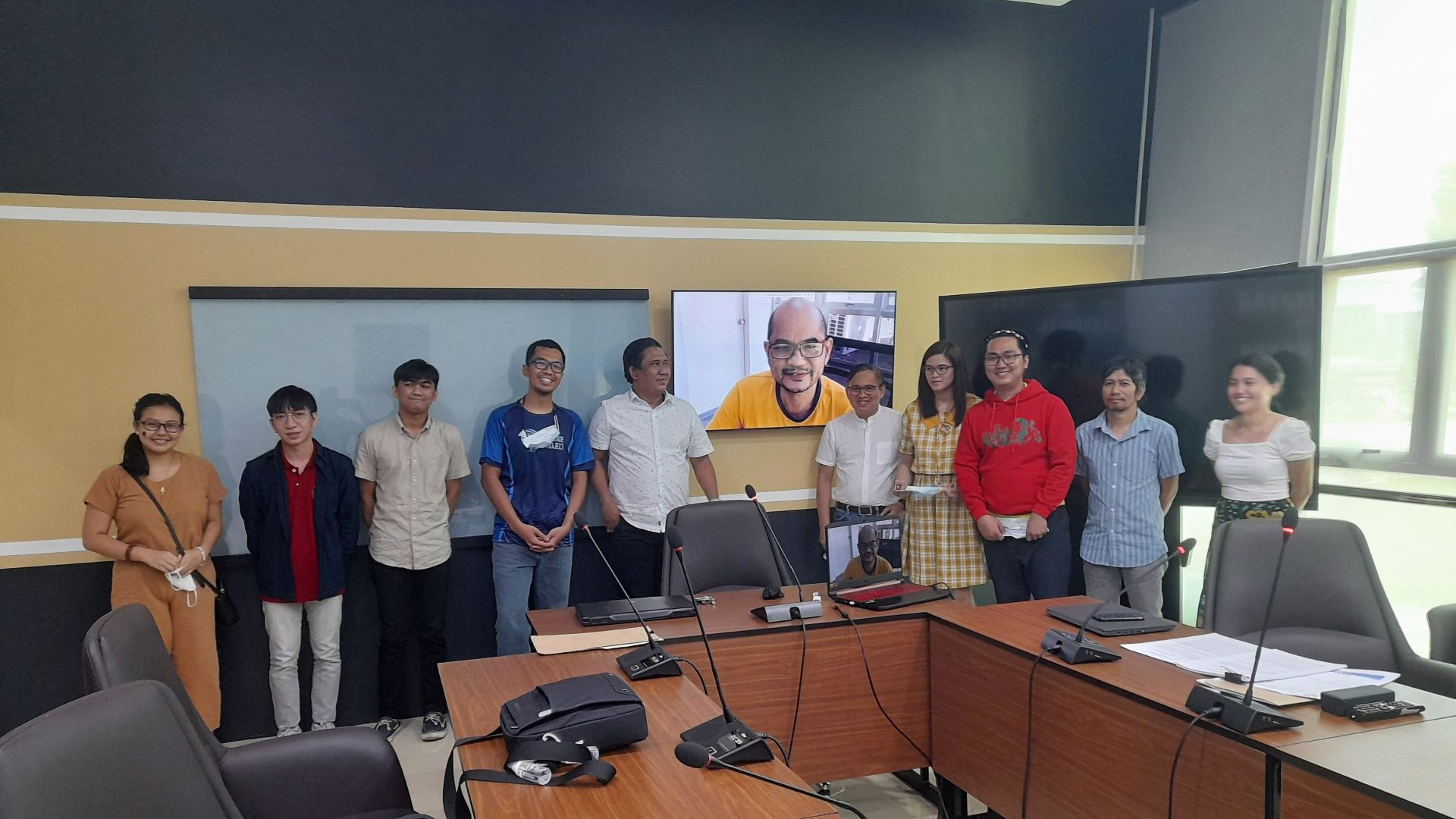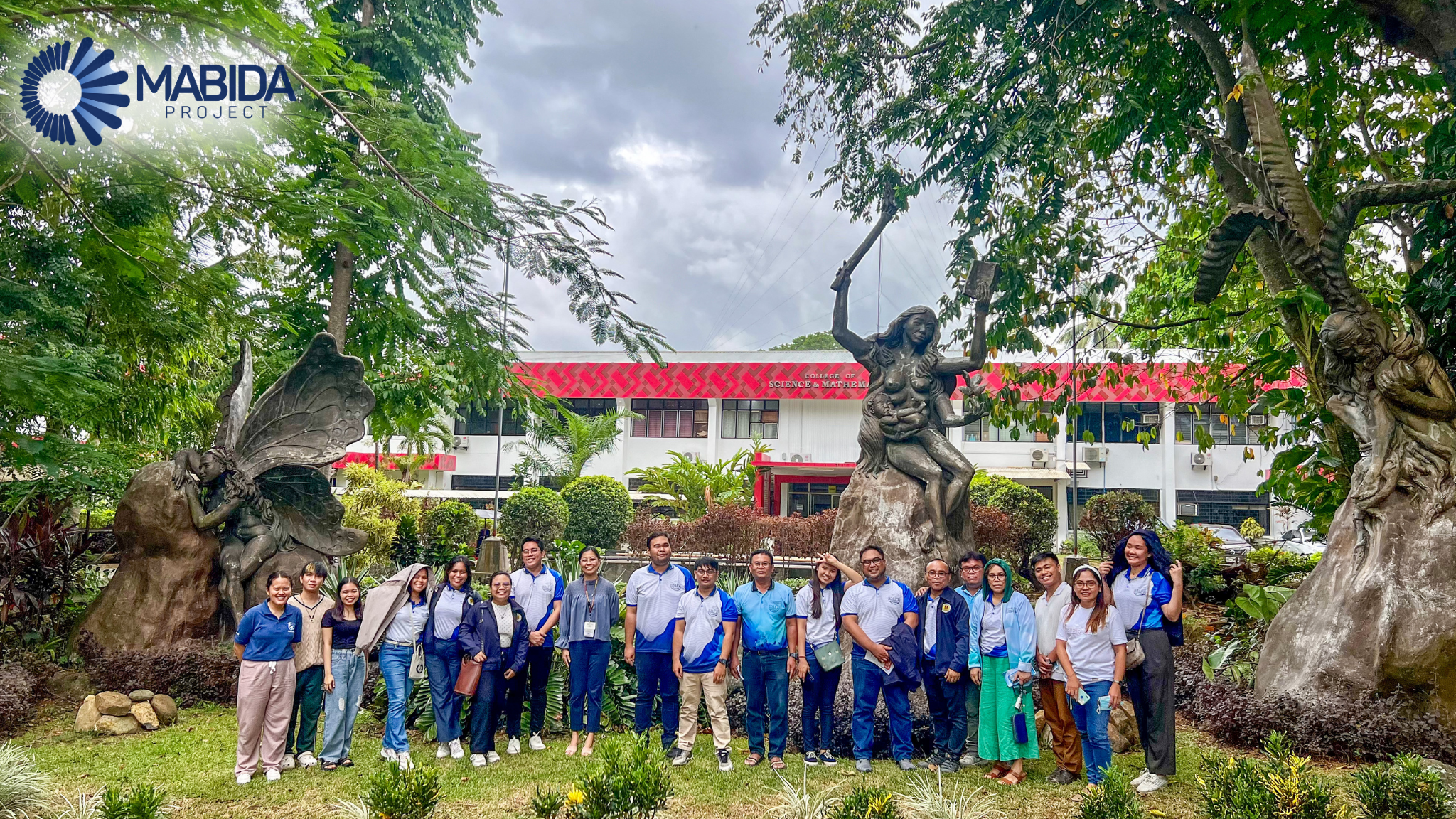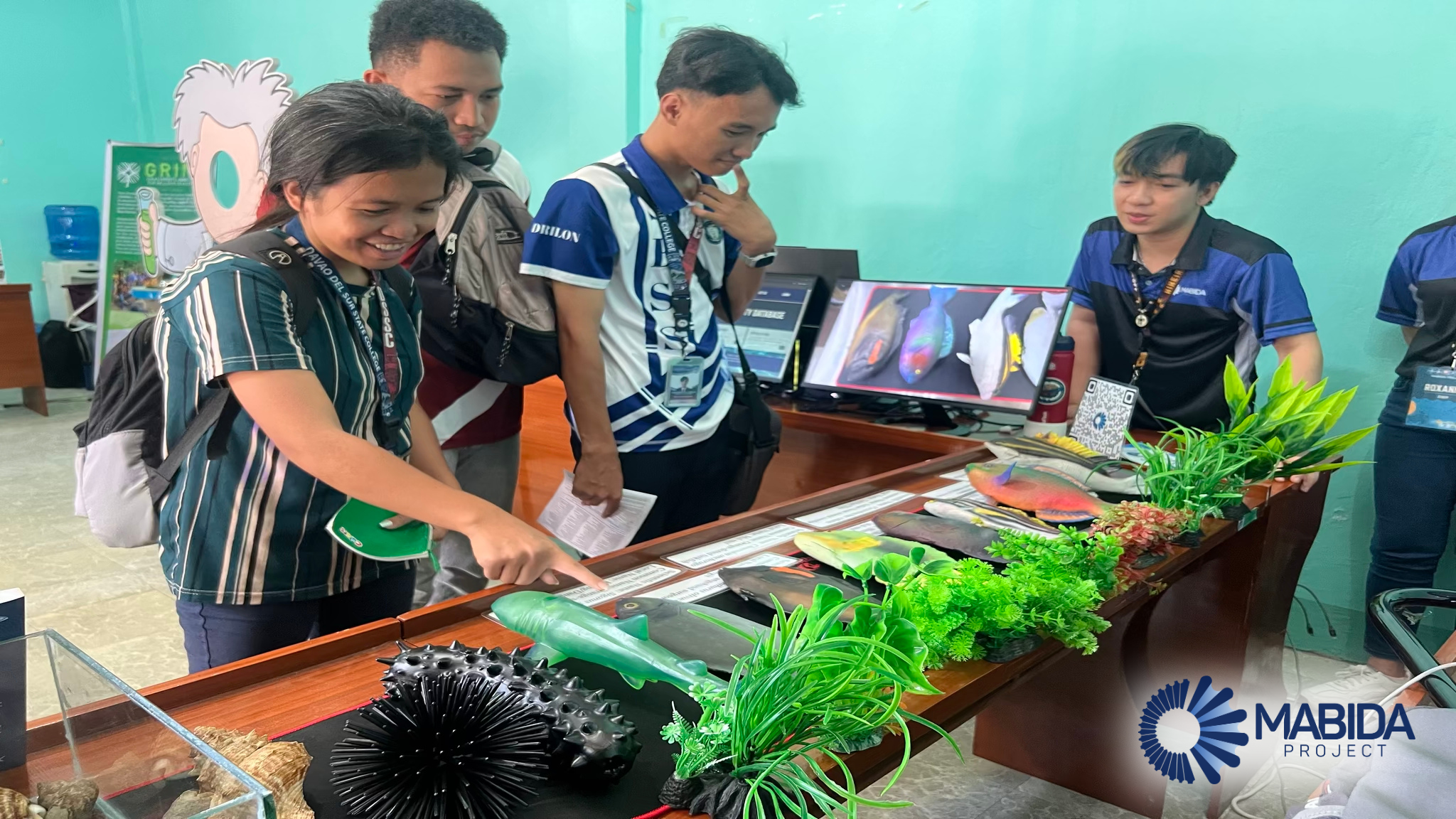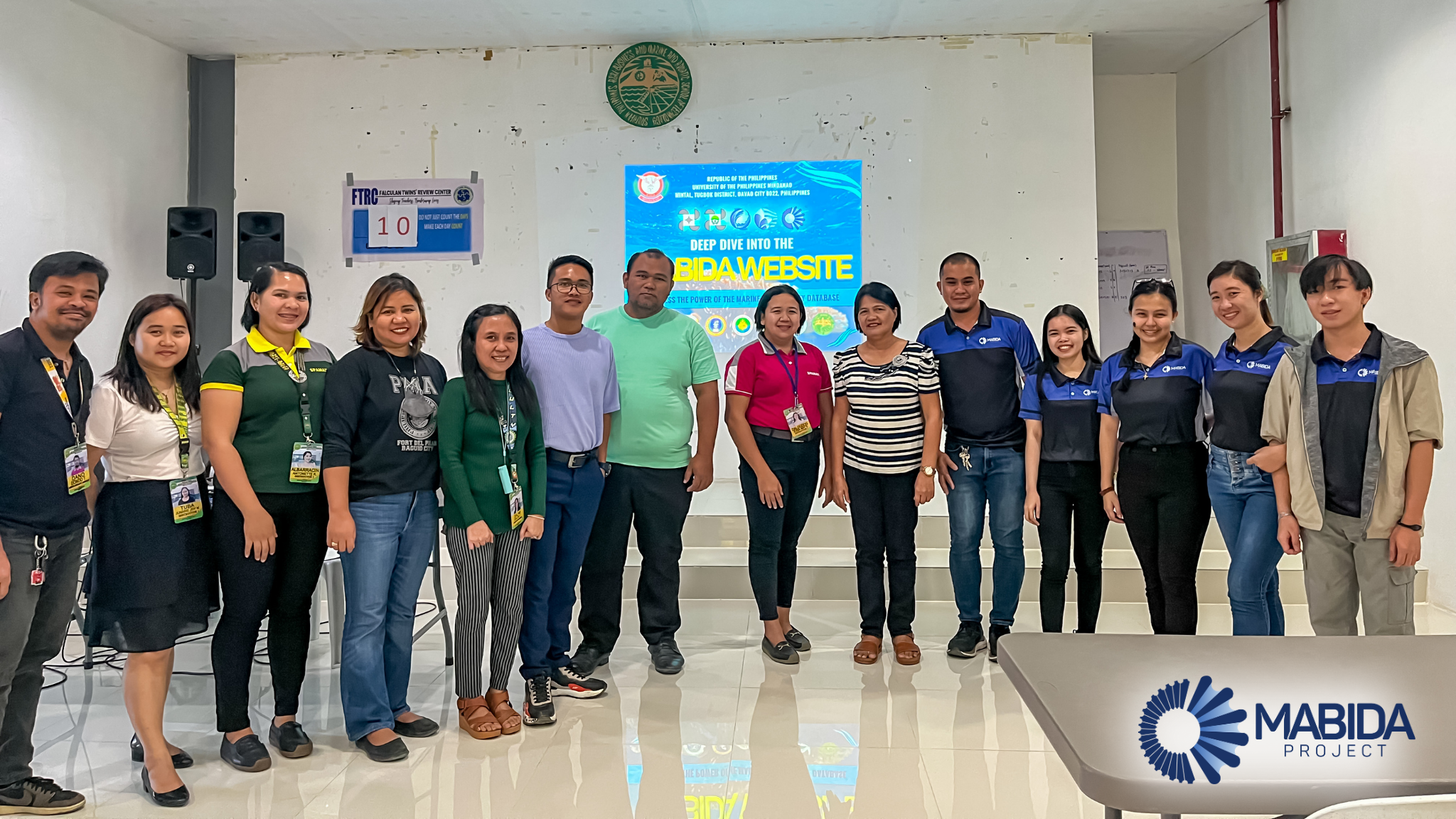
CSU & MABIDA: Forging Marine Biodiversity Collaboration
Written by Ralph Raleigh P. Dalig
Uploaded on Sept. 9, 2022
CSU and ABRAHAM Project 2 MABIDA met for the first time for a possible collaboration.
BUTUAN CITY - Researchers from the ABRAHAM Program conducted a courtesy visit to Caraga State University (CSU) in Butuan City on 09 September 2022 to present the executive brief of the program.
The team, represented by Mr. Leo Manuel B. Estaña, Project Leader of MABIDA, and researchers Kevin L. Labrador from FishDive, Norjan Charls M. Cabanalan, Geomarie Anne S. Paredes, Ralph Raleigh P. Dalig, and Maria Joselle V. Luzon from MABIDA, were welcomed by Dr. Romell A. Seronay, Research and Extension Coordinator Chief of CSU, together with the faculty and staff of the Biology Department. Dr. Seronay started the meeting with a brief introduction of the representatives of CSU and a presentation of the current research thrusts of CSU's Center for Research in Environmental Management and Eco-Governance (CRÈME). Objectives and outputs of the program were presented, including the database and website being continuously updated. They also discussed potential areas for collaboration.
MABIDA aims to create a comprehensive database on Philippine reef fishes specifically for the regions under the Celebes Sea and part of the Sulu Sea. CSU, one of the Higher Education Institutions (HEIs) in Mindanao interested in marine biodiversity and resource management, is highly invited and encouraged to populate the database and conduct collaborative scientific activities.



